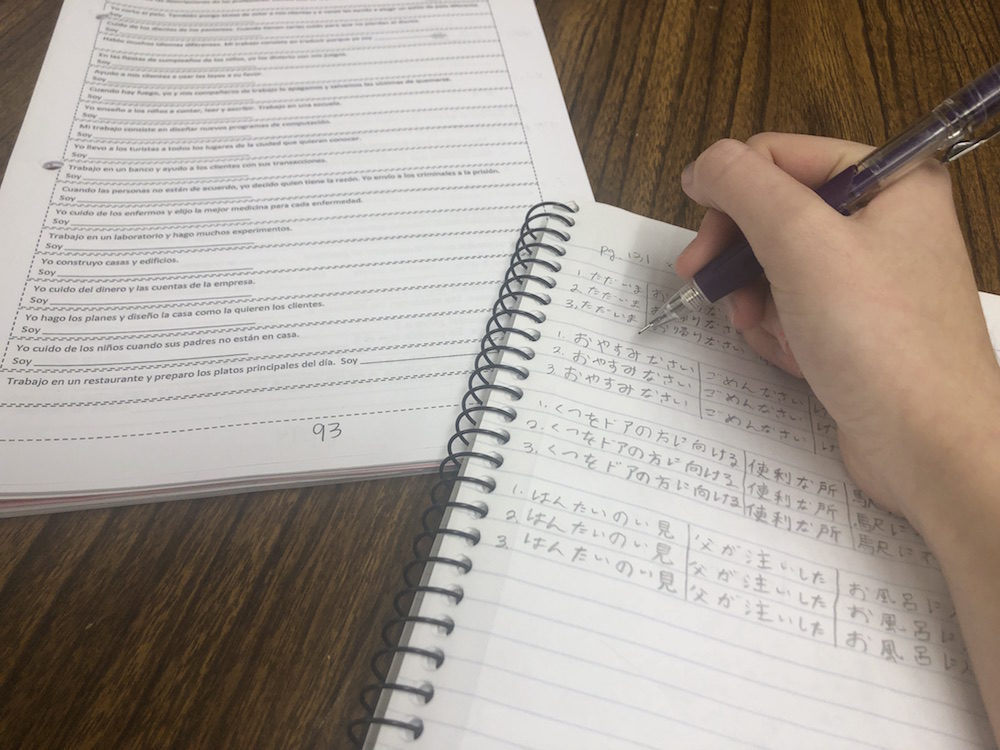
By Jennifer Trend, Staff Writer
At FVHS, any student has the opportunity to take Spanish, French or Japanese. But they may also choose to double up and take two languages at once, expanding their knowledge on other cultures and the spoken word. If you plan on taking more than one language, consider the different aspects.
Students who take an additional language are usually very motivated to learn, have an interest in world languages and cultures and/or have a career interest in mind that requires the knowledge of multiple languages.
For junior Kaili Masae Ker, it’s a mix of connecting to her own culture and developing skills that can help her in her career path. Ker currently takes Japanese Three at FVHS and Chinese at the United Chinese Learning Center located on Goldenwest.
“I took two languages because I felt it’s important mainly to connect with my culture as both a Japanese American and a Chinese American,” said Ker. “I really felt a strong passion for learning foreign languages freshman year and plan on using that in my future.”
However, learning two languages that either derive from a common language or are similar to each other can be hard to learn, especially if one doesn’t have a strong grasp on one of the languages. For example, Kanji (from Japanese) comes from the Chinese lettering system, while French and Spanish have roots in Latin, which can be hard to separate if you’re just starting out- leaving you more frustrated than excited.
“I’ve dabbled a little bit in learning some Italian, just in Duolingo, the app, and I’ve found that knowing Spanish does definitely help me with Italian so there’s that crossover a lot, especially Romance languages, like languages that come from Latin,” said World Language Department Head Jim Diecidue. “Definitely those commonalities can help, but for some learners, it might be confusing since they’re so close, to keep them separated. Really, it just depends on the student’s motivation I think, their background with languages, what their reasons are for learning to do it, and it can work.”
Nevertheless, overcoming the challenge is nothing to those passionate about languages. In the long run, by learning more languages, it can get easier as you would already know how language structures work and how to learn a language.
Perhaps try taking a language that varies differently from the one you’re currently learning. Or maybe try taking a similar or related language after you’ve had strong footing in one. But above all: have fun and make sure you’re dedicated to learning a new language and the culture.
“I would [tell students to] just make sure that you have the time to dedicate to both,” said Diecidue. “… they would want to be someone who is definitely motivated and has that drive to learn, and enjoys the cultures.”





